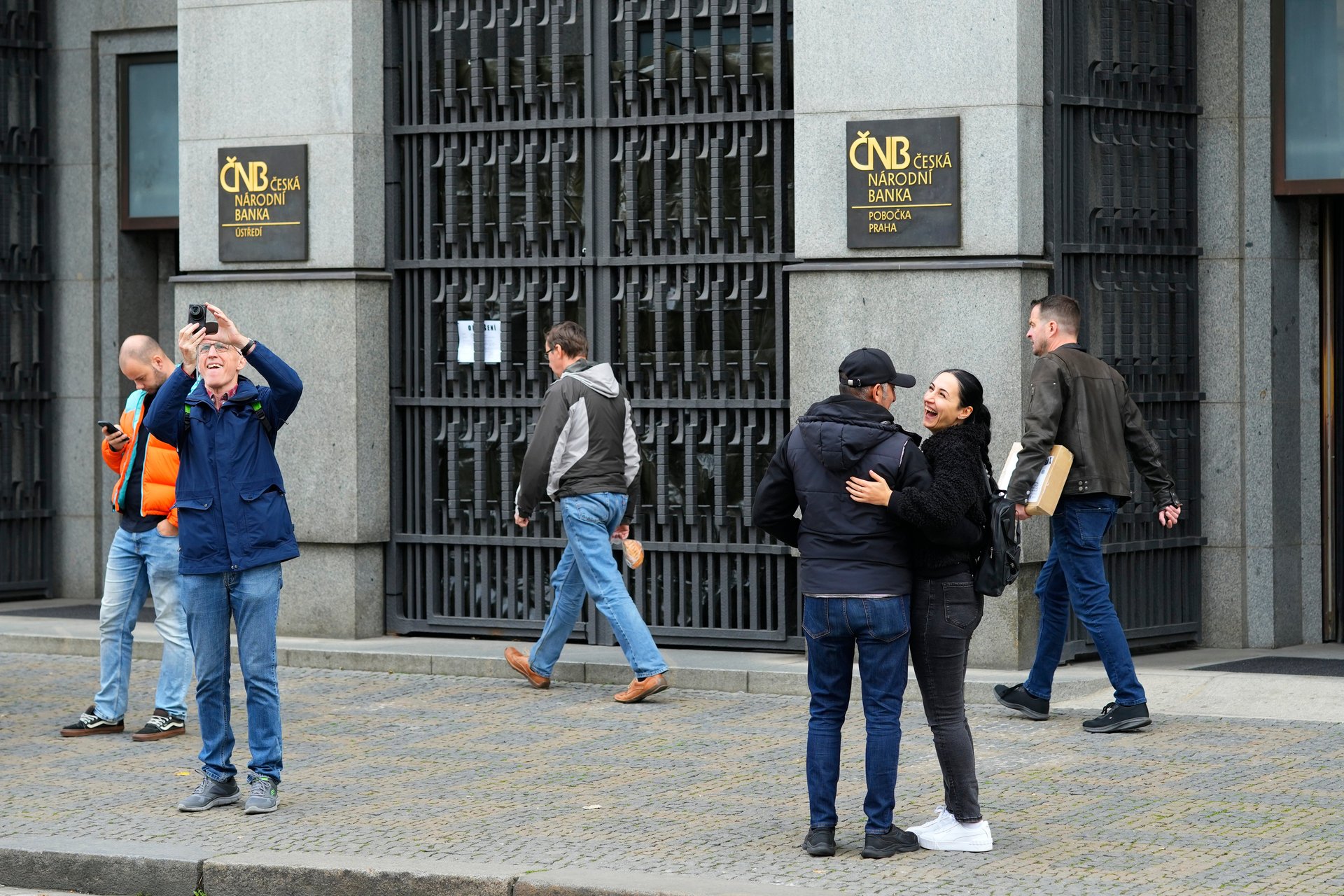The Czech central bank cuts key interest rate for the first time since June 2022 to help economy
The Czech Republic’s central bank has cut its key interest rate to help the country's struggling economy

PRAGUE (AP) — The Czech Republic’s central bank cut its key interest rate Thursday hoping to give the country's struggling economy a boost.
Suggested Reading
The cut by a quarter of a percentage point brought the interest rate down to 6.75%. It was the first time the bank cut the rate since June 22 last year.
Related Content
Last year the bank raised its key interest rate as it tried to combat soaring inflation. The hike of a percentage point and a quarter took the rate to 7%, the highest level since early 1999. It was the ninth straight increase since June 2021.
The move took place at the last meeting of the bank’s board on monetary policy under outgoing governor Jiri Rusnok.
On July 1, Rusnok was replaced by Ales Michl, a member of the bank’s board since 2018 who opposed previous rate hikes.
Thursday’s move was expected by most analysts.
Inflation in the Czech Republic soared to 18% in September last year. It was at 7.3% in November this year, according to the Czech Statistics Office, which is still well above the bank’s 2% target.
The Czech economy contracted by 0.7% year-on-year in the third quarter and by .5% compared with the previous quarter, the third straight contraction.
Elsewhere, the European Central Bank kept its key interest rate at a record high of 4% last week on Thursday and said it will leave it there as long as needed to battle back inflation. That signaled that cuts are not around the corner despite expectations it will act next year to support the shrinking economy.
The U.S. Federal Reserve kept its key interest rate unchanged a day before for a third straight time, and its officials signaled that they expect to make three quarter-point cuts to their benchmark rate next year.
The Fed kept its benchmark rate at about 5.4%, its highest level in 22 years.